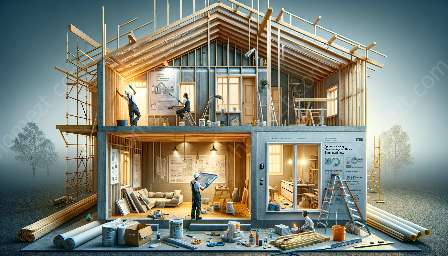Home maintenance is an essential aspect of ensuring that your living space remains comfortable, safe, and visually appealing. Whether you are a homeowner or a renter, it's important to allocate budget for ongoing maintenance tasks to prevent potential issues from turning into costly repairs. In this comprehensive guide, we'll explore the importance of budgeting for home maintenance and provide practical tips to help you manage your expenses effectively.
The Importance of Budgeting for Home Maintenance
For many individuals, the economic challenges may make it tempting to overlook home maintenance expenses. However, neglecting regular upkeep can lead to larger and more expensive issues in the long run. By budgeting for home maintenance, you can address small problems before they escalate, ultimately saving you money and preserving the value of your property.
Evaluating Your Home Maintenance Needs
1. Assessing Current Condition: Whether you have just moved into a new home or have been in your residence for years, it's important to evaluate the current condition of your property. Take note of any visible issues that require immediate attention, such as leaky faucets, cracked tiles, or faulty electrical outlets.
2. Prioritizing Maintenance Tasks: Once you have identified areas that need attention, prioritize the maintenance tasks based on their urgency and impact on your everyday life. Categorize them as essential repairs, moderate improvements, and optional upgrades to help you allocate your budget accordingly.
Creating a Home Maintenance Budget
When establishing a budget for home maintenance, consider the following factors to ensure that you can address both routine upkeep and unexpected repairs:
- Annual Upkeep: Determine the average annual maintenance costs for your property, including expenses for routine services such as HVAC maintenance, pest control, and landscaping.
- Emergency Fund: Set aside a portion of your budget for unforeseen repairs or maintenance emergencies. Having a financial cushion can help alleviate the stress and strain of unexpected home issues.
- Long-Term Planning: Anticipate larger renovation or improvement projects, such as roof replacement, kitchen upgrades, or exterior painting, and allocate funds towards these future endeavors.
- DIY Projects: Whenever possible, take on minor maintenance and repair tasks yourself to save on labor costs. However, be mindful of your skill level and consult professionals for complex or potentially hazardous issues.
- Comparison Shopping: When purchasing materials or hiring contractors, obtain multiple quotes to identify the most cost-effective options without compromising on quality.
- Regular Inspections: Conduct routine inspections of your property to identify and address maintenance needs in their early stages, preventing them from evolving into more extensive and costly problems.
Effective Strategies for Managing Home Maintenance Expenses
While budgeting for home maintenance is essential, there are several strategies you can employ to manage your expenses efficiently:
Conclusion
By effectively budgeting for home maintenance, you can ensure that your living space remains in optimal condition while minimizing the impact of unforeseen repair expenses on your finances. Start by evaluating your current maintenance needs, creating a comprehensive budget, and implementing cost-saving strategies to manage your home maintenance expenses efficiently. Remember that proactive and consistent upkeep is key to preserving the comfort, functionality, and aesthetic appeal of your home.





















